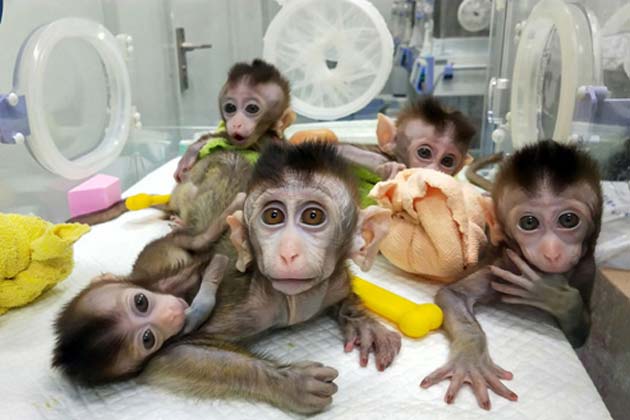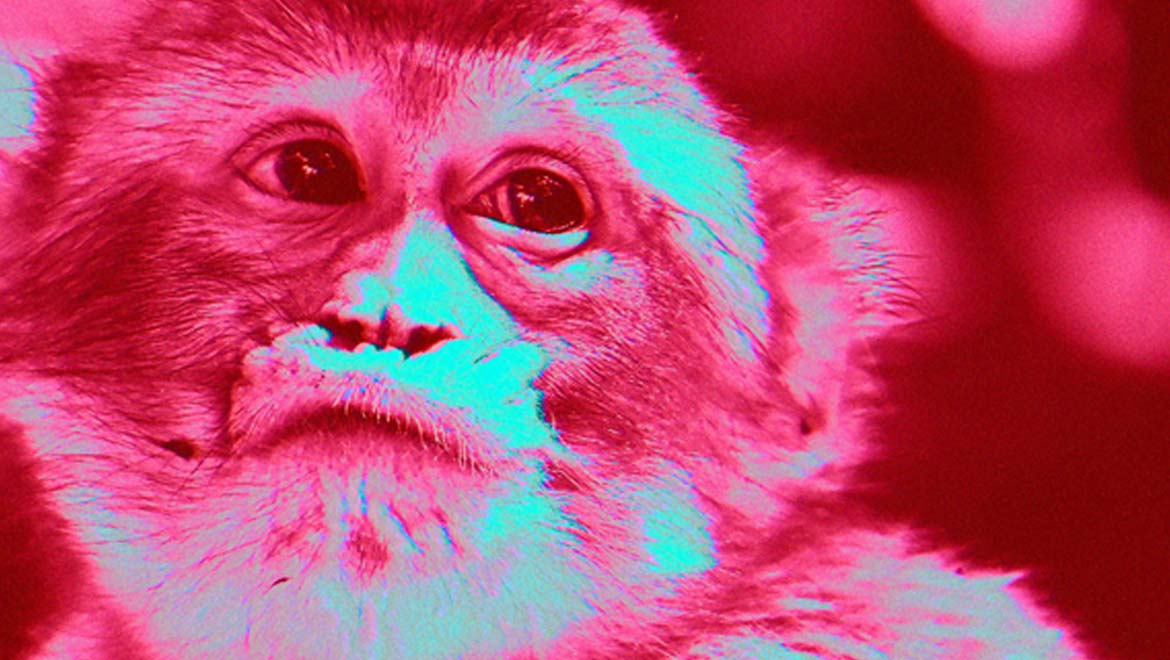For the first time, Chinese scientists have used gene-editing techniques to make monkey brains more humanlike.
The rhesus macaques got "smarter" as they were found to have superior memories to unaltered monkeys, according to a recently published research that has kicked off a fiery debate among ethicists about how far scientists should be able to take genetic experimentation.
In the past too, in fact, just a year ago, reproductive cloning techniques resulted in a pair of monkey clones. This news wasn’t accepted very well, by a part of the scientific community.
However, the latest study, published last month in Beijing's National Science Review journal, describes the experiment, which is billed as the "first attempt to experimentally interrogate the genetic basis of human brain origin using a transgenic monkey model, and it values the use of nonhuman primates in understanding human unique traits."
Monkey Brains Like Human Brains?
The researchers inserted copies of the human MCPH1 gene, which is crucial for brain development, into 11 monkey embryos through a virus that carried the gene. Six of the monkeys died. The other five, though, showed apparent strides in their cognitive functions.
According to the study, the five monkeys did not show much difference in their general behavior or the size of their brains. But they went through brain scans and memory tests that showed improvements in their short-term memory, reaction times and brain development.
The study says the monkeys have "potential to provide important—and potentially unique—insights into basic questions of what actually makes human unique, as well as into disorders and clinically relevant phenotypes, such as neurodegenerative and social behavior disorders that are difficult to study by other means."
Although the sample size was very small, the scientists excitedly described the study as the first time the human brain was explored from a genetic angle, using the monkey brain as a model.
In other words, the point was to help tackle a question about evolution: How did we humans develop our unique brand of intelligence, which has allowed us to innovate in ways that other primates cannot?
The Big Ethical Debate
“The use of transgenic monkeys to study human genes linked to brain evolution is a very risky road to take,” the University of Colorado geneticist, James Sikela, told MIT Technology Review. “It is a classic slippery slope issue and one that we can expect to recur as this type of research is pursued.”

This picture released by the Chinese Academy of Sciences’ Institute of Neuroscience shows five cloned macaques at a research institution in Shanghai. (Source: STR/AFP/Getty Images)
Primates have often been used in studies aimed at understanding how various diseases develop and how we can treat them in humans, yet it is important to note that there is a difference between giving a monkey a disease and giving the animal more human-like intelligence. If diseases are inflicted on animals, they could be harmed, but their fundamental nature (of being an animal) is not affected.
Adding human brain genes to a monkey, however, stands to fundamentally change the way a monkey perceives and interacts with reality. So, even if it is morally acceptable to experiment on monkeys, in the name of better treating human disease, it is still a big leap from that to Su’s experiment.
After all, the very premise of the experiment is that the monkeys may end up more human-like as a result of it.
In a 2010 paper titled, “The ethics of using transgenic non-human primates to study what makes us human,” Glover and her co-authors wrote that it’s unethical to add human brain genes to apes (such as chimpanzees).
Barbara J. King, author of 'How Animals Grieve' and an emerita professor of anthropology at the College of William and Mary called Bing Su’s (a geneticist at the Kunming Institute of Zoology) experiment “an ethical nightmare.” She said, “More of the genetically altered monkeys, six died than lived, so right off the bat we see that the procedure is often lethal. Regarding the five survivors, what kind of lives will they have going forward, altered as they are and confined to an experimental laboratory?”
However, Bing Su, told MIT Technology Review, he has been adding a DNA variant called SRGAP2C, which is a crucial link in the emergence of human intelligence, to monkeys. He said the results of those studies have yet to be published.
Top Image: Monkey brains have been inserted with a human brain gene, making them behave more “humanlike.” (Source: Pixabay)







No comment